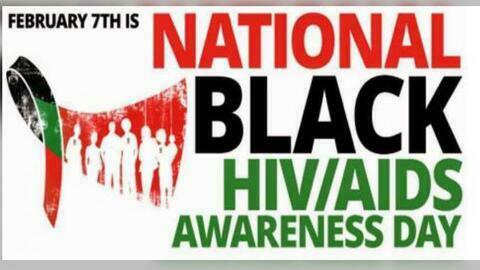By: Yuritza Arroyo
In recognition of National Black HIV/AIDS Awareness Day today, February 7, the New Jersey Department of Health (NJDOH) is reaffirming its commitment to improving HIV prevention and care while reducing long-standing health disparities that have disproportionately impacted Black residents.
According to officials, NJDOH encourages residents to follow recommendations from the Centers for Disease Control and Prevention (CDC), stating that everyone between the ages of 13 and 64 years should get tested for HIV at least once as part of routine health care and that those at higher risk should get tested at least once per year.
“The Department’s work to reduce health disparities and improve HIV services for highly-impacted populations is essential to helping to end the HIV epidemic,” said Health Commissioner Judith Persichilli.
“We also continue to work with and support our community partners in this effort.
Although Black residents comprised 15.3 percent of the state’s population in 2022, this cohort represented nearly half (47.2 percent) of the 37,693 New Jersey residents living with HIV/AIDS as of December.
Over the last decade, 46.7 percent of new HIV diagnoses in New Jersey were among Black individuals, compared to 17.7 percent among White individuals.
A disproportionate impact has similarly been seen on the national level, with Black individuals accounting for 13.6 percent of the U.S. population but 40.4 percent of people with HIV as of July 2021, according to the CDC.
Nationally, progress has been made in reducing HIV diagnoses among most age groups, with HIV diagnoses decreasing 17 percent among Black people from 2015 to 2021.
In New Jersey, progress has been made with reducing HIV diagnoses among most age groups, with HIV diagnoses decreasing 12.7 percent among Black people from 2015 to 2021.
To address disproportionate rates of HIV among Black people and other people of color in New Jersey, NJDOH released “A Strategic Plan to End the HIV Epidemic in New Jersey by 2025” in 2021, which set the following goals:
- Reduce the number of new HIV infections by 75 percent overall;
- Promote access to testing so that 100 percent of individuals living with HIV/AIDS know their status; and
- Promote access/linkage to care so that 90 percent of those diagnosed with HIV/AIDS are virally suppressed.
In January 2022, NJDOH’s Division of HIV, STD, and TB Services implemented a statewide grant program using state funding to align the state’s overarching HIV strategy with national best practices.
This program supports developing and implementing high-quality, customer-centered, culturally appropriate, and trauma-informed Comprehensive Status Neutral HIV Services for focus populations most affected by the HIV epidemic.
To date, the Department has awarded nearly 40 grants to various local health departments, federally qualified health centers, community-based organizations, hospital systems, and other agencies across the state to support this status-neutral approach to HIV prevention and treatment.
The Department further supports Ending the HIV Epidemic by leveraging both State and federal resources and funding services in areas of the state most affected by HIV.
Among other steps taken to date, in January 2022, Governor Phil Murphy signed legislation decriminalizing sexual activity by persons infected with HIV or a sexually transmitted infection.
